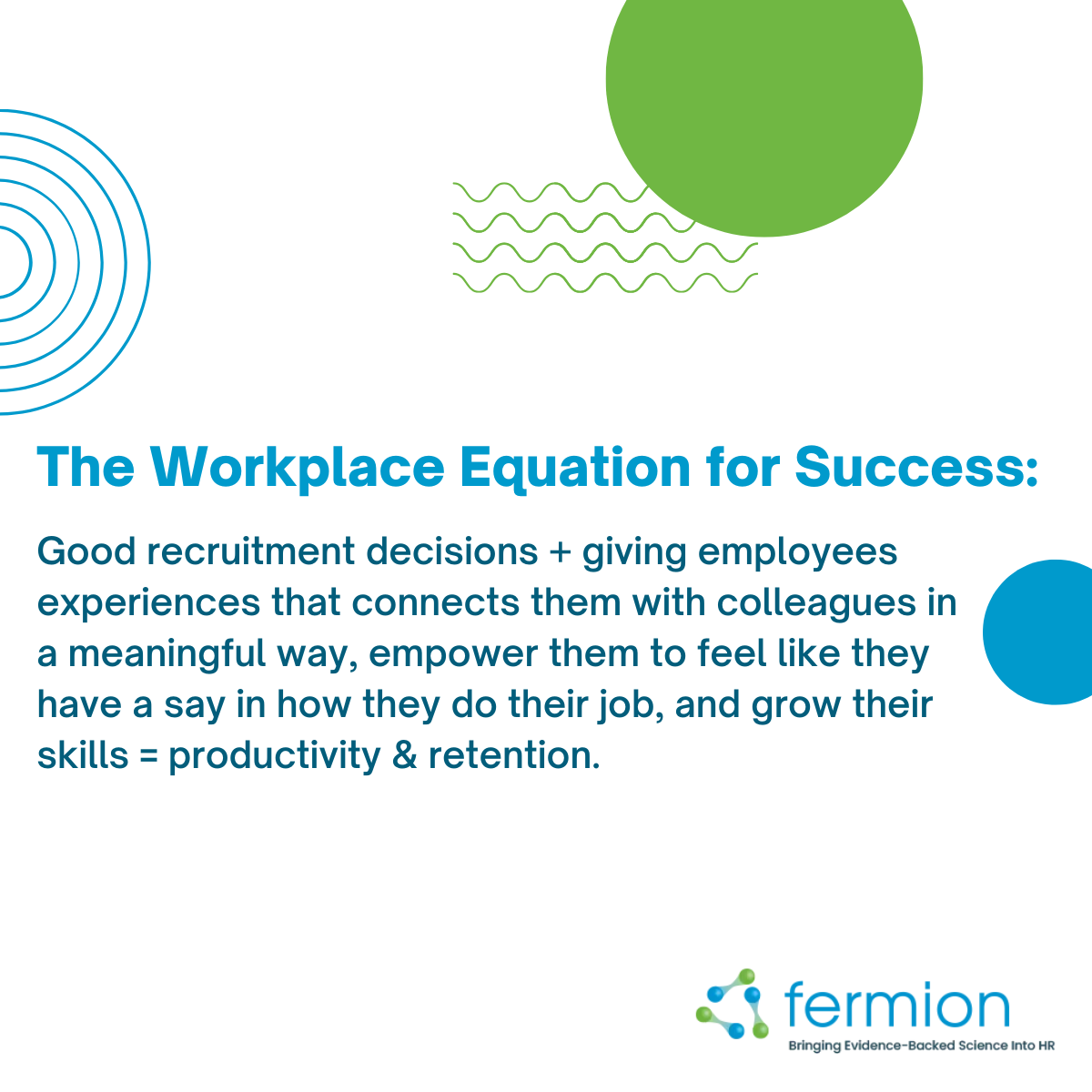How to Build a High Performing Team
We hope you enjoy reading this blog post!
Fermion is a Wollongong-based HR consultancy that specialises in helping companies across Australia save money through innovative recruitment and retention programs. Let us help your organisation thrive.
How to Motivate Your Employees
Imagine your employees consistently demonstrated the following behaviours:
· Reliable, punctual, and dependable.
· Polite and respectful.
· Team members back each other up and help each other.
· Share information.
· Technically sound and good at their job.
· They want to do well, and they care about the outcomes.
· The absence of bullying, harassment and other offensive behaviours.
· They enjoy coming to work – they really like their job.
Imagine having a team that behaved like that most of the time: that would be a high performing team. These are employees you can confidently assign tasks to, who takes pride and ownership in producing high-quality work, and genuinely enjoy coming to work and being part of a high performing team. These employees do not need well-being programs or external motivators, such as rewards, free morning tea, gym memberships etc.
By all means, use wellbeing programs and rewards, but do not expect them to have any positive impact beyond the initial “sugar hit”; this approach does not drive long-term, or even medium-term, improvements in behaviours. Likewise, money or promotions do not drive long-term motivation, nor do performance reviews or motivational platitudes. Salaries and pay need to be fair for the industry and compared to peers, but beyond that, it will not develop a high performing team.
Motivation
The main purpose of any People & Culture policy should be about motivation, i.e., how do we motivate our employees, so they are engaged, loyal and productive. You could argue the success of any business or organisation depends upon getting the People & Culture policy settings correct. Having a superior service or product, all within the best business plan and strategy, is compromised without good staff to implement it. However, hiring good staff and keeping them motivated, loyal and productive is a significant ongoing challenge for many businesses and organisations, but, it does not have to be that way.
Psychological Needs
Decades of research demonstrate that when people feel psychologically fulfilled, they tend to be healthier, happier, and more productive. Psychological needs are at the heart of building a high performing team: to thrive at work, people need experiences that connect them to colleagues in a meaningful way (relatedness), empower them to feel like they have some say in how they do their job (autonomy), and grow their skills (competence).
These three psychological constructs should be at the heart of your organisation’s people and culture practises, and if they are, you are on the right track. Another way to express the three psychological needs for peak performance is as follows:
· Relatedness: How well staff at all levels get on and relate to each other. People relating to each other as colleagues and co-workers; supporting and trusting each other and helping to get the job done. When talking about relationships at work we are not talking about friendships alone. What matters most is the quality of the working relationships, particularly with respect to trust, respect, and recognition. Building and maintaining good working relationships requires constant renewal and reaffirmation by all parties. It requires a permanent connection between the manager and the team and between the team members.
· Autonomy: Employees participating in decisions that affect the day-to-day business of the workplace and where possible, employees determine how they tackle the daily demands of their role.
· Competence: Employees being trained in their role to a high standard and given opportunities to improve, be it through training, mentoring or peer collaboration.
Every business owner or leader can create psychologically fulfilling workplace experiences and unlock peak performance. You do not have to be high energy or a visionary or a dynamic person to deliver this solution. This solution is not about “transforming” anyone or making someone a different person, but instead it can be used by anyone and once it is in place allows you to focus on your core business instead of being too distracted by staff issues.
Selecting good staff and keeping them engaged, loyal and productive must cover the entire life cycle of an employee: from selection, to induction, to retention, and finally, an exit interview. This employee life cycle needs to be done within a framework where every employee’s psychological needs of relatedness, autonomy and competence are met. If you get your People & Culture policy settings correct, your employees can flourish and thrive at work and enjoy long and meaningful careers within your organisation.
About the Author:
Christopher Apps is an Organisational Psychologist and the owner of Fermion. He stays updated on the latest psychology research and shares evidence-based insights. The focus of Fermion is "Psychometric Testing for Recruitment" and “Recruitment to Retention: How to Select Good Staff & Keep Them”. If you would like to learn how to select good staff and keep them, please feel free to contact us at Fermion.
“Learn from the mistakes of others. You can’t live long enough to make them all yourself.”
Eleanor Roosevelt.





